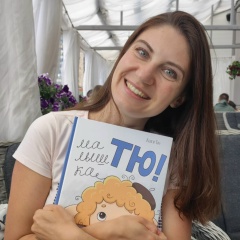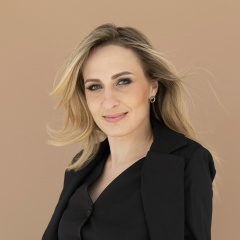Это первый пост из серии про одномандатный округа в Петербургский ЗакС. Обзор выборов 2016 года
В Петербурге смешанная система выборов. Из 50 депутатов 25 избираются пропорционально набранным партиями процентам, 25 избираются по одномандатным округам. Партии, которые находятся в ЗакСе, выдвигают кандидатов без подписей.
В 2011 все 50 депутатов ЗакСа избирали только по партийным спискам. Перед 2016 как и в госдуме систему изменили на смешанную с одномандатными округами. Она позволила ЕР взять большинство, хотя получили они только 41,2% голосов, но при этом выиграли 24 одномандатных округа из 25.
Мажоритарная система выгодна власти, т.к. учитываются только голоса отданные за лидера. Он и становится депутатом. Остальные голоса пропадают.
Сейчас расклад в ЗакСе такой:
ЕР — 36 = 12 по партийным (41,2%) + 24 одномандатника
СР — 3 = 2 по партийным (9,1%) + 1 одномандатник
ЛДПР — 3 по партийным (12,4%)
КПРФ — 3 по партийным (11,3%)
Партия Роста — 3 по партийным (10,7%)
Яблоко — 2 по партийным (9,8%)
Интересно посмотреть, кто сколько из партий потратил на городскую кампанию. И сколько получилось в пересчете на полученный мандат
СР — 96,4 млн - 112 тыс. голосов - 48,2 млн за мандат.
ПР — 27,15 млн - 132 тыс. голосов - 9 млн за мандат
КПРФ — 3,8 млн - 138,5 тыс. голосов - 1,3 млн за мандат
ЛДПР — 23,9 млн - 152,7 тыс. голосов - 9,2 млн за мандат
Яблоко - 8,4 млн - 120,2 тыс голосов — 4,2 млн за мандат
ЕР — 44,8 млн — 507,7 тыс голосов - 3,8 млн за мандат
Хотя расходы эти не совсем правильно сравнивать. На стоимость голоса влияет рейтинг партии, административный ресурс, фальсификации, не известны траты мимо счетов. Но некоторые выводы можно сделать.
Во первых, это низкий рейтинг СР. Вложив 96 млн, получили только два мандата. Откусить демократический электорат практически не получилось, а своего избирателя у СР нет.
А у Партии роста получилось. Тут стоимость мандата уже информативная, т.к. ядерного электората у них не было.
Результаты выборов показали количество ядерного электората у КПРФ и Яблоко. Первые потратили очень мало, вторые побольше, но кампания была плохая.
Еще интересный факт, что Партия роста потратила на сбор подписей для выдвижения 84 тыс. рублей (4,5 рубля за подпись). Для сравнения, нормальная цена в то время 200-300 рублей. Можно смело говорить о том, что подписи рисованные. И выдвижение согласовано с власть.
Заодно посмотрим, кто отказался от мандата по партийным спискам. У ЕР это Милонов. Полагаю, для него нахождение в списке ЕР в ЗакС было подстраховкой на случай, если проиграет одномандатный округ в Дума.
У СР отказался Нилов и Миронов. Для первого это тоже была подстраховка. А Миронов был "паровозом". У ЛДПР в Питере таким же паровозом был Жириновский, тоже потом отказался от мандата.
"Паровозы" это известные личности, которых ставят во главе списке. Они за счет популярности привлекают голоса. Но потом после выборов отказываются от мандатов и места занимают следующие по очереди из списка.
#округавЗакС
В Петербурге смешанная система выборов. Из 50 депутатов 25 избираются пропорционально набранным партиями процентам, 25 избираются по одномандатным округам. Партии, которые находятся в ЗакСе, выдвигают кандидатов без подписей.
В 2011 все 50 депутатов ЗакСа избирали только по партийным спискам. Перед 2016 как и в госдуме систему изменили на смешанную с одномандатными округами. Она позволила ЕР взять большинство, хотя получили они только 41,2% голосов, но при этом выиграли 24 одномандатных округа из 25.
Мажоритарная система выгодна власти, т.к. учитываются только голоса отданные за лидера. Он и становится депутатом. Остальные голоса пропадают.
Сейчас расклад в ЗакСе такой:
ЕР — 36 = 12 по партийным (41,2%) + 24 одномандатника
СР — 3 = 2 по партийным (9,1%) + 1 одномандатник
ЛДПР — 3 по партийным (12,4%)
КПРФ — 3 по партийным (11,3%)
Партия Роста — 3 по партийным (10,7%)
Яблоко — 2 по партийным (9,8%)
Интересно посмотреть, кто сколько из партий потратил на городскую кампанию. И сколько получилось в пересчете на полученный мандат
СР — 96,4 млн - 112 тыс. голосов - 48,2 млн за мандат.
ПР — 27,15 млн - 132 тыс. голосов - 9 млн за мандат
КПРФ — 3,8 млн - 138,5 тыс. голосов - 1,3 млн за мандат
ЛДПР — 23,9 млн - 152,7 тыс. голосов - 9,2 млн за мандат
Яблоко - 8,4 млн - 120,2 тыс голосов — 4,2 млн за мандат
ЕР — 44,8 млн — 507,7 тыс голосов - 3,8 млн за мандат
Хотя расходы эти не совсем правильно сравнивать. На стоимость голоса влияет рейтинг партии, административный ресурс, фальсификации, не известны траты мимо счетов. Но некоторые выводы можно сделать.
Во первых, это низкий рейтинг СР. Вложив 96 млн, получили только два мандата. Откусить демократический электорат практически не получилось, а своего избирателя у СР нет.
А у Партии роста получилось. Тут стоимость мандата уже информативная, т.к. ядерного электората у них не было.
Результаты выборов показали количество ядерного электората у КПРФ и Яблоко. Первые потратили очень мало, вторые побольше, но кампания была плохая.
Еще интересный факт, что Партия роста потратила на сбор подписей для выдвижения 84 тыс. рублей (4,5 рубля за подпись). Для сравнения, нормальная цена в то время 200-300 рублей. Можно смело говорить о том, что подписи рисованные. И выдвижение согласовано с власть.
Заодно посмотрим, кто отказался от мандата по партийным спискам. У ЕР это Милонов. Полагаю, для него нахождение в списке ЕР в ЗакС было подстраховкой на случай, если проиграет одномандатный округ в Дума.
У СР отказался Нилов и Миронов. Для первого это тоже была подстраховка. А Миронов был "паровозом". У ЛДПР в Питере таким же паровозом был Жириновский, тоже потом отказался от мандата.
"Паровозы" это известные личности, которых ставят во главе списке. Они за счет популярности привлекают голоса. Но потом после выборов отказываются от мандатов и места занимают следующие по очереди из списка.
#округавЗакС
This is the first post in a series about a single-member constituency in the St. Petersburg Legislative Assembly. 2016 election overview
Petersburg has a mixed electoral system. Out of 50 deputies, 25 are elected in proportion to the percentages recruited by the parties, 25 are elected in single-mandate constituencies. Parties that are in the Legislative Assembly nominate candidates without signatures.
In 2011, all 50 deputies of the Legislative Assembly were elected only by party lists. Before 2016, as in the State Duma, the system was changed to a mixed one with single-member constituencies. She allowed the United Russia to take the majority, although they received only 41.2% of the vote, but won 24 out of 25 single-member constituencies.
The majority system is beneficial to the authorities, because only votes cast for the leader are counted. He becomes a deputy. The rest of the voices disappear.
Now the alignment in the ZakSa is as follows:
EP - 36 = 12 for party (41.2%) + 24 single-mandate
SR - 3 = 2 for party (9.1%) + 1 single mandate
Liberal Democratic Party - 3 by party (12.4%)
Communist Party of the Russian Federation - 3 by party (11.3%)
Party of Growth - 3 by party (10.7%)
Apple - 2 by party (9.8%)
It is interesting to see how many of the parties spent on the city campaign. And how much did it turn out in terms of the mandate received
SR - 96.4 million - 112 thousand votes - 48.2 million for the mandate.
PR - 27.15 million - 132 thousand votes - 9 million per mandate
Communist Party of the Russian Federation - 3.8 million - 138.5 thousand votes - 1.3 million for the mandate
LDPR - 23.9 million - 152.7 thousand votes - 9.2 million for the mandate
Apple - 8.4 million - 120.2 thousand votes - 4.2 million per mandate
EP - 44.8 million - 507.7 thousand votes - 3.8 million per mandate
Although these costs are not entirely correct to compare. The cost of a vote is influenced by the rating of the party, administrative resources, falsifications, spending by the accounts is not known. But some conclusions can be drawn.
First, it is the low CP rating. Having invested 96 million, we received only two mandates. It was practically impossible to bite off the democratic electorate, and the SR does not have its own voters.
And the Growth Party succeeded. Here the cost of the mandate is already informative, since they did not have a nuclear electorate.
The election results showed the number of the nuclear electorate in the CPRF and Yabloko. The former spent very little, the latter more, but the campaign was bad.
Another interesting fact is that the Growth Party spent 84 thousand rubles (4.5 rubles per signature) on collecting signatures for the nomination. For comparison, the normal price at that time was 200-300 rubles. We can safely say that the signatures are drawn. And the nomination is coordinated with the authorities.
At the same time, we'll see who refused the mandate on the party lists. EP is Milonov. I believe that for him being on the United Russia list in the ZakS was a safety net in case the single-member constituency loses in the Duma.
Nilov and Mironov refused from the SR. For the first, it was also a safety net. And Mironov was a "locomotive". The Liberal Democratic Party in St. Petersburg had the same steam locomotive Zhirinovsky, who also later refused the mandate.
"Locomotives" are famous people who are put at the head of the list. They attract votes due to their popularity. But then, after the elections, they refuse mandates and the next ones from the list take places.
#districtavZakS
Petersburg has a mixed electoral system. Out of 50 deputies, 25 are elected in proportion to the percentages recruited by the parties, 25 are elected in single-mandate constituencies. Parties that are in the Legislative Assembly nominate candidates without signatures.
In 2011, all 50 deputies of the Legislative Assembly were elected only by party lists. Before 2016, as in the State Duma, the system was changed to a mixed one with single-member constituencies. She allowed the United Russia to take the majority, although they received only 41.2% of the vote, but won 24 out of 25 single-member constituencies.
The majority system is beneficial to the authorities, because only votes cast for the leader are counted. He becomes a deputy. The rest of the voices disappear.
Now the alignment in the ZakSa is as follows:
EP - 36 = 12 for party (41.2%) + 24 single-mandate
SR - 3 = 2 for party (9.1%) + 1 single mandate
Liberal Democratic Party - 3 by party (12.4%)
Communist Party of the Russian Federation - 3 by party (11.3%)
Party of Growth - 3 by party (10.7%)
Apple - 2 by party (9.8%)
It is interesting to see how many of the parties spent on the city campaign. And how much did it turn out in terms of the mandate received
SR - 96.4 million - 112 thousand votes - 48.2 million for the mandate.
PR - 27.15 million - 132 thousand votes - 9 million per mandate
Communist Party of the Russian Federation - 3.8 million - 138.5 thousand votes - 1.3 million for the mandate
LDPR - 23.9 million - 152.7 thousand votes - 9.2 million for the mandate
Apple - 8.4 million - 120.2 thousand votes - 4.2 million per mandate
EP - 44.8 million - 507.7 thousand votes - 3.8 million per mandate
Although these costs are not entirely correct to compare. The cost of a vote is influenced by the rating of the party, administrative resources, falsifications, spending by the accounts is not known. But some conclusions can be drawn.
First, it is the low CP rating. Having invested 96 million, we received only two mandates. It was practically impossible to bite off the democratic electorate, and the SR does not have its own voters.
And the Growth Party succeeded. Here the cost of the mandate is already informative, since they did not have a nuclear electorate.
The election results showed the number of the nuclear electorate in the CPRF and Yabloko. The former spent very little, the latter more, but the campaign was bad.
Another interesting fact is that the Growth Party spent 84 thousand rubles (4.5 rubles per signature) on collecting signatures for the nomination. For comparison, the normal price at that time was 200-300 rubles. We can safely say that the signatures are drawn. And the nomination is coordinated with the authorities.
At the same time, we'll see who refused the mandate on the party lists. EP is Milonov. I believe that for him being on the United Russia list in the ZakS was a safety net in case the single-member constituency loses in the Duma.
Nilov and Mironov refused from the SR. For the first, it was also a safety net. And Mironov was a "locomotive". The Liberal Democratic Party in St. Petersburg had the same steam locomotive Zhirinovsky, who also later refused the mandate.
"Locomotives" are famous people who are put at the head of the list. They attract votes due to their popularity. But then, after the elections, they refuse mandates and the next ones from the list take places.
#districtavZakS

У записи 23 лайков,
0 репостов,
873 просмотров.
0 репостов,
873 просмотров.
Эту запись оставил(а) на своей стене Андрей Моисейкин











































